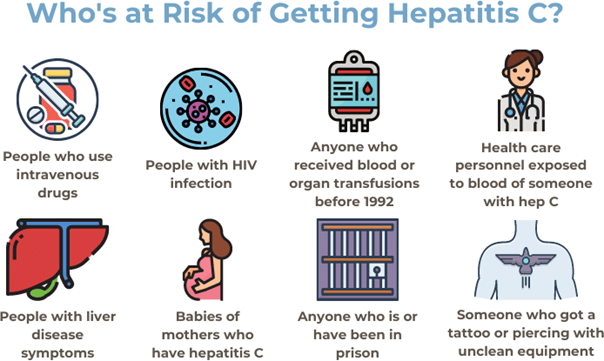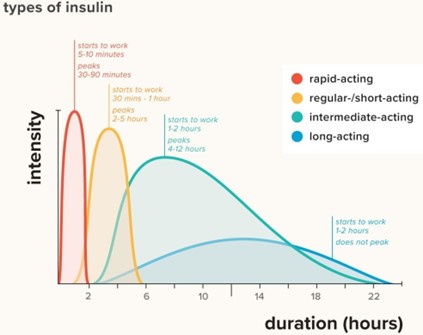Which information from a 70-year-old patient during a health history indicates to the nurse that the patient should be screened for hepatitis C?
The patient traveled to a country with poor sanitation.
The patient used IV drugs about 20 years ago.
The patient had a blood transfusion in 2005.
The patient frequently eats in fast-food restaurants.
The Correct Answer is B
Intravenous drug use is a significant risk factor for hepatitis C transmission. The other options are not necessarily related to hepatitis C transmission. However, having a blood transfusion before 1992 or receiving an organ transplant before 1992, having a history of receiving blood products or clotting factor concentrates before 1987, and having been born to a mother with hepatitis C are also considered significant risk factors for hepatitis C transmission.

Nursing Test Bank
Naxlex Comprehensive Predictor Exams
Related Questions
Correct Answer is ["A","C","D"]
Explanation
The correct answers are a, c, and d. The client will need to take thyroid hormone replacement (levothyroxine) for the rest of her life since she had a total thyroidectomy. The dosage will need to be carefully monitored to ensure that it is correct, and laboratory tests will need to be done frequently to monitor thyroid hormone levels. Taking too much of the drug can cause hyperthyroidism symptoms, so it is important not to take more than prescribed. It is also important to check with a healthcare provider before taking any other medications or herbs, as they can interact with levothyroxine.
Answer b is incorrect because the client will need to take the drug for the rest of her life.

Correct Answer is C
Explanation
The nurse will discuss using rapid-acting insulin such as Lispro (Humalog) for mealtime coverage in a patient with diabetes who is starting insulin therapy. Rapid-acting insulin begins to work quickly after injection, usually within 15 minutes, and peaks at around 1 hour. This makes it an effective choice for covering the rise in blood sugar that occurs after meals.
Options A, B, and D are all long-acting insulins that are used to provide a basal level of insulin coverage throughout the day but are not appropriate for mealtime coverage.

Whether you are a student looking to ace your exams or a practicing nurse seeking to enhance your expertise , our nursing education contents will empower you with the confidence and competence to make a difference in the lives of patients and become a respected leader in the healthcare field.
Visit Naxlex, invest in your future and unlock endless possibilities with our unparalleled nursing education contents today
Report Wrong Answer on the Current Question
Do you disagree with the answer? If yes, what is your expected answer? Explain.
Kindly be descriptive with the issue you are facing.
